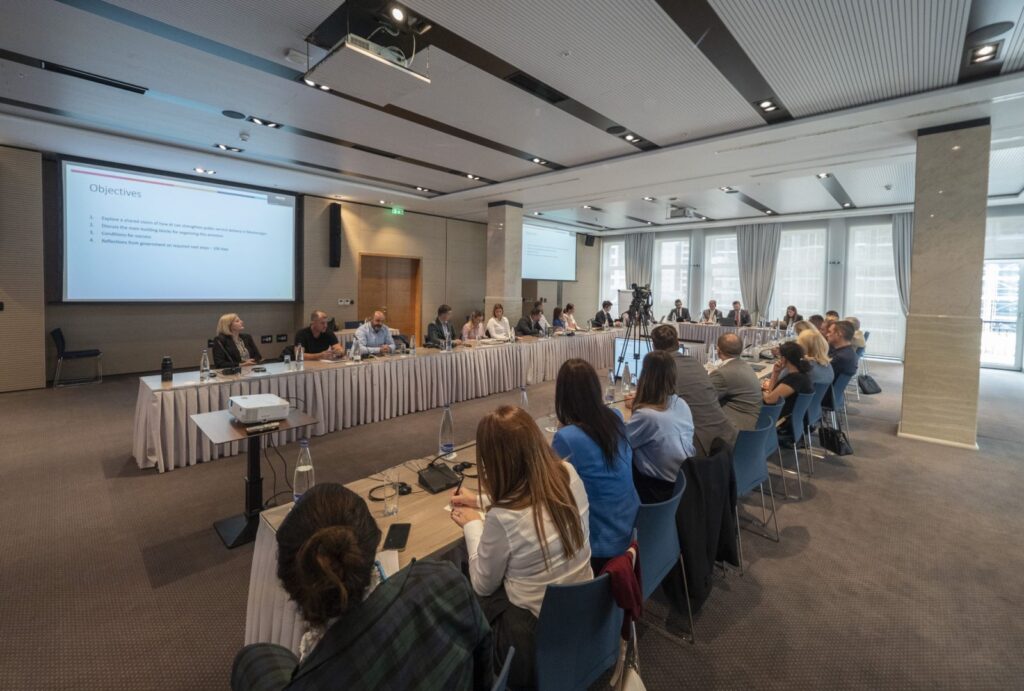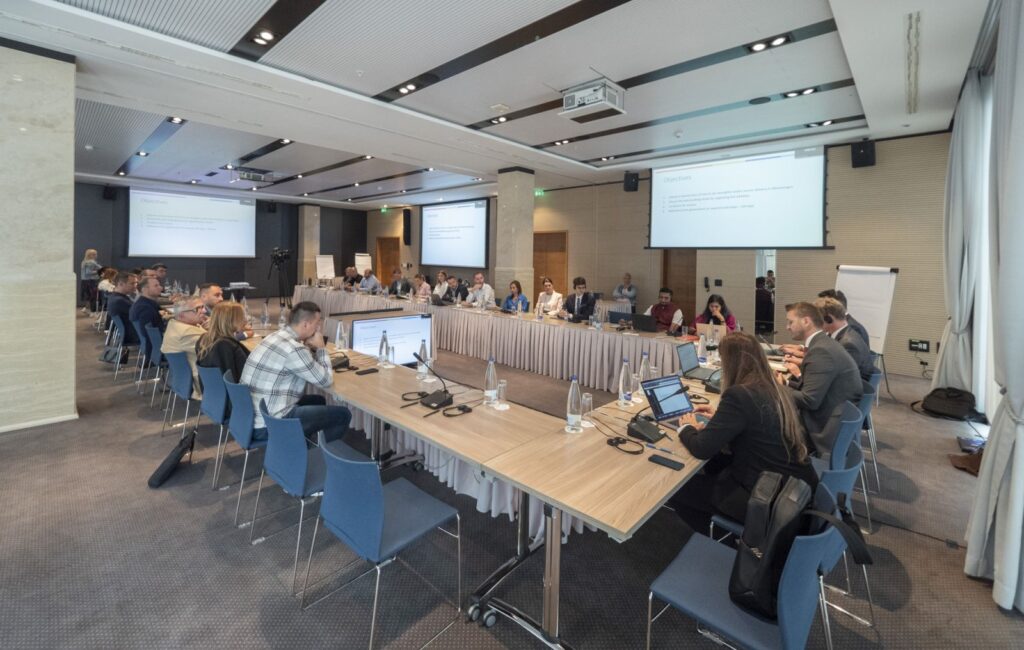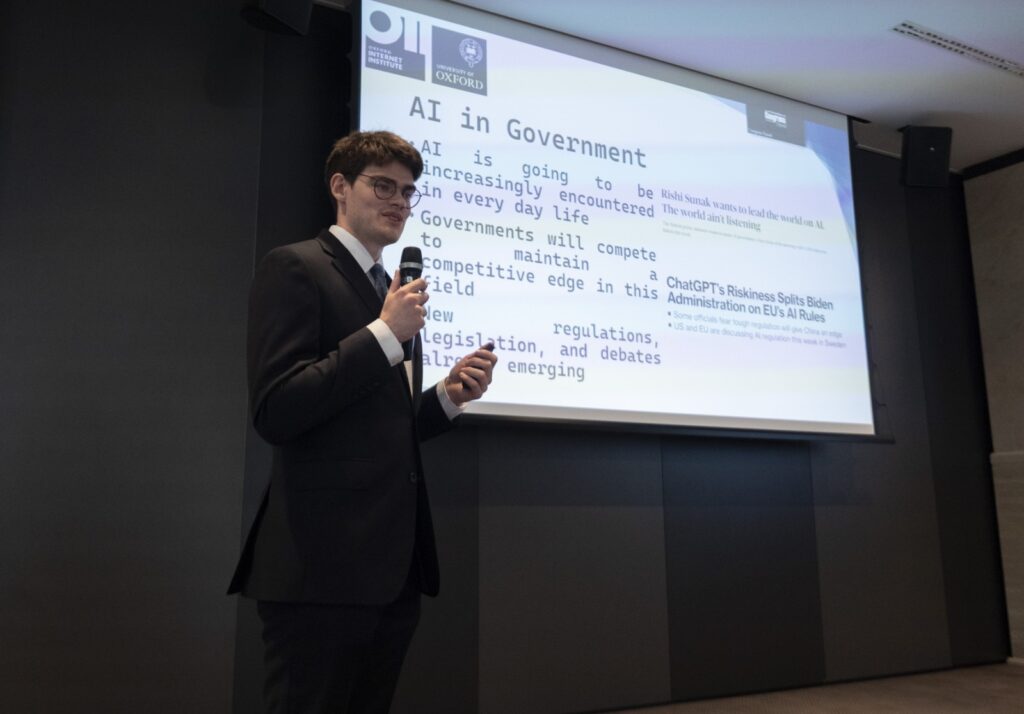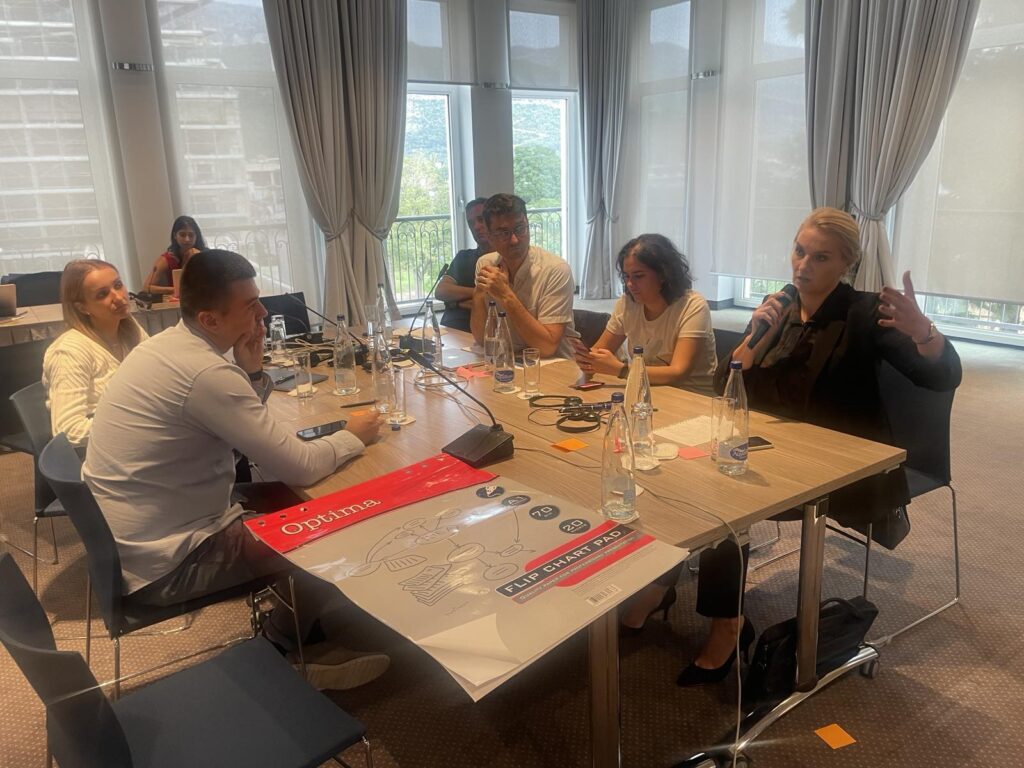At the Avala Hotel in Budva, on September 27, 2024, as part of the international EPhEU event, the association of pharmacy organizations from Europe (September 26 to 28, 2024), a session on Module 6 of continuing education for Montenegrin pharmacists was held, titled “Artificial Intelligence in Pharmacy: Digital Challenges, Myths and Misconceptions Incorporated in Digital Media, the Need for New Competencies for Pharmacists.” This event gathered over 150 experts, both online and in person, from the field of pharmacy, aiming to discuss the role of artificial intelligence in transforming the pharmaceutical sector.

Mr Stevan Čakić from UDG and NCC Montenegro gave a lecture on the history and development of AI, emphasizing its growing importance in pharmacy. Then a special attention was given to the application of AI in drug development, personalized therapy, and optimization of pharmaceutical services. The discussion addressed the potential of AI and HPC to reshape the way pharmacists perform their daily tasks, as well as the need to improve skills and knowledge to adapt to new technologies.

It was concluded that an interdisciplinary approach is crucial for the proper implementation of AI solutions in pharmacy. Experts from technology, pharmacy, and regulatory fields must work closely together to ensure that AI technologies are used in an ethical and efficient manner. This educational module confirmed that the pharmaceutical industry is on the brink of a major technological transformation, where AI will play a significant role, and the future of pharmacy will depend on the ability of its professionals to adopt new digital competencies.
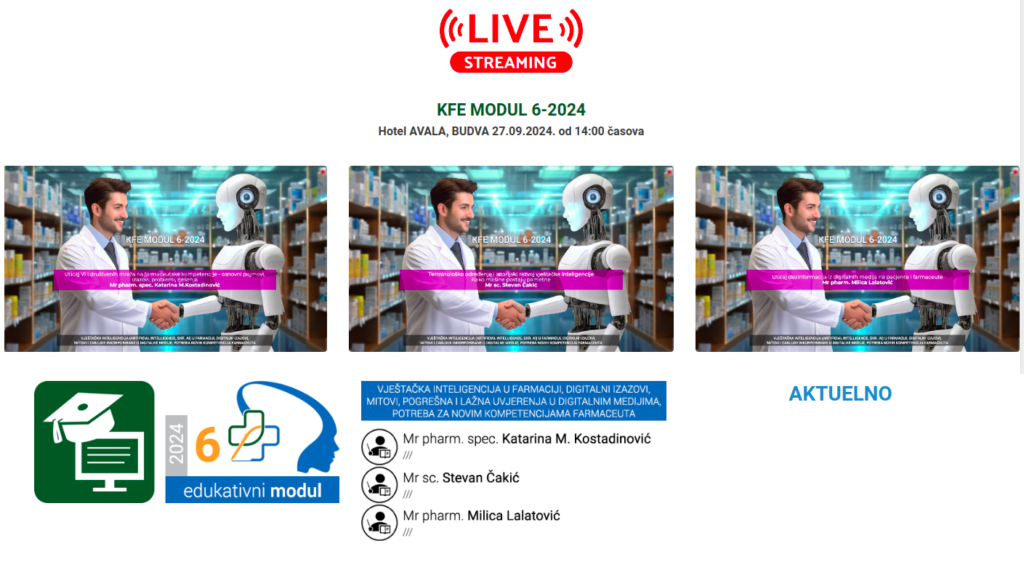
More on the event: https://pkfe.me/edukativni-programi/



